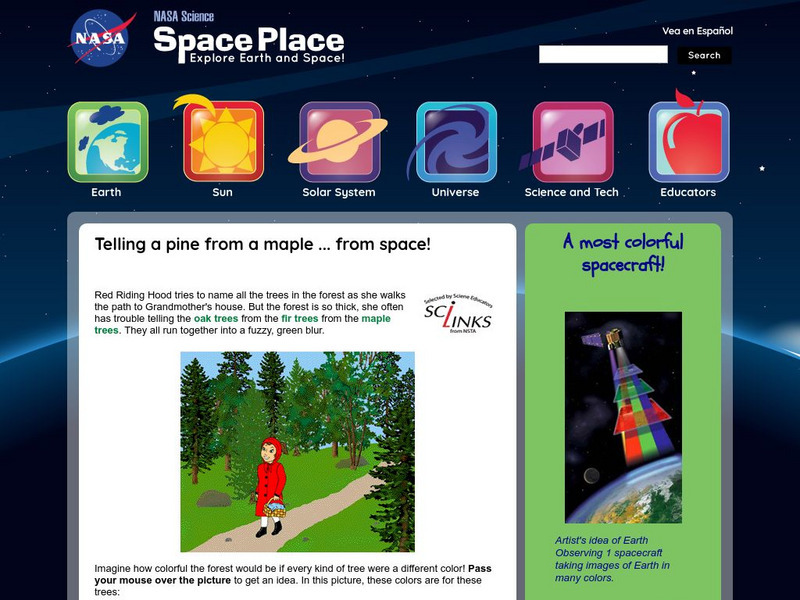PBS
Pbs Learning Media: Meteor Showers
This video segment adapted from NASA uses animation to illustrate the properties of meteor showers and comets. Included is are visualizations of a comet's tail and of Earth passing through a debris stream left behind by meteoroids.
Cosmos 4 kids
Cosmos4 Kids: Exploration: Satellites
Learn about satellites .. early history, manned and unmanned, different kinds of orbits, and more. The brief, to the point text makes this site most suitable for younger researchers.
Georgia State University
Georgia State University: Hyper Physics: Hund's Rules
A complete overview of Hund's rules including exceptions.
University of Colorado
University of Colorado: Physics 2000: Energy Levels
This site describes the energy levels of atoms.
NASA
Nasa: The Space Place: Sorting Out Trees in the Forest
This site from the National Aeronautics and Space Administration provides fun information on the subject. "people can do their jobs even better if they have very accurate images of the ground. Oddly enough, the best way to see lots of...
CK-12 Foundation
Ck 12: Earth Science: Planets of the Solar System
[Free Registration/Login may be required to access all resource tools.] Examines the eight planets of our solar system, their orbits, and rotation.
National Council of Teachers of Mathematics
Nctm: Illuminations: Mars Earth Orbit Computer Activity
Students will use this applet to form and test hypothesis of what the orbit of Mars will look like relative to Earth. [Requires Java.]
Georgia State University
Georgia State University: Hyper Physics: Kepler's Laws
An outstanding page describing Kepler's three laws of planetary motion.
Cool Math
Coolmath: Science Monster: Introduction to Our Solar System
Find out about all the planets and other solar system characteristics in this colorful, illustrated tutorial on our neighborhood in space.
NASA
Nasa: Goddard Institute for Space Studies: Time on Mars
This site provides a Java-based program called Mars24. You can download this to your computer to keep track of time on Mars.
Science Buddies
Science Buddies: Kinesthetic Astronomy: Longer Days, Shorter Nights
This kinesthetic activity demonstrates to young scholars that the Earth's tilt is what is responsible for shifting light patterns and the change in seasons.
My Hero Project
My Hero: John Glenn
Use this site to learn about John Glenn's accomplishments as a U.S. Marine, astronaut, and senator. This article includes links to further related information on Glenn as well as brief excerpts from the "My Hero Guestbook" in which...
Cornell University
Cornell University: Astronomy: Orbital Motion and Kepler's Laws
At this site from the Astronomy Department of Cornell University, Kepler's three laws of planetary motion are stated. There are brief explanations of each, along with links to additional information on related subjects.









